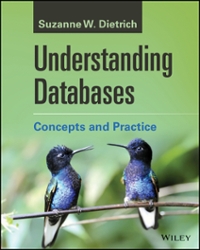Question
This program will take a PPM image and will encrypt/decrypt when supplied with a key The goal is to fix the errors and decrypt the
This program will take a PPM image and will encrypt/decrypt when supplied with a key
The goal is to fix the errors and decrypt the secret PPM image. This image will contain a number which you should submit in a README file along with the completed source code. Once youve fixed compiler errors, you can run the program like this: ./crypto secret.ppm key decrypted.ppm
This will use secret.ppm as the source, key as the crypto key, and decrypted.ppm as the location of the generated image. You will be presented with an option to encrypt or decrypt. Do not encrypt an already encrypted image! At this stage, you will run into segmentation faults and memory leaks. Fix these and then attempt to decrypt the secret message!
Objectives: Fix compiler errors/warnings. The comments will show what sections have errors. Read source code. Fix segmentation faults/plug memory leaks using GDB and Valgrind. Run decryption program to decrypt secrets.ppm. Comment on the number hidden in the image.
Only errors in: Lab3.c main() method, crypto.c read_image() method, crypto.c sym_crypt() method
XXXXXXXXXXXXXXXXXXXXXXXXXXXXXXXXXXXXXXXXXXXXXXXXXXXXXXXXXXXXXXXXXXXXXXXX
// Lab3.c //
#include "stdio.h"
#include "stdlib.h"
#include "crypto.h"
int main(int argc, char const *argv[]) {
FILE* image_file = fopen(argv[1], "r");
FILE* key_file = fopen(argv[2], "r");
FILE* out_image = fopen(argv[3], "w");
// Read image
header_t header;
img_t img;
read_header(image_file, header);
read_image(image_file, &img, &header);
// Read secret key
int seed;
read_seed(key_file, *seed);
sp_rand(eed);
/** NO ERROR HERE **/
printf("Encrypt[1] or Decrypt[2]? ");
int choice;
while(true) {
scanf("%d",&choice);
if(choice == 1 || choice == 2) {
sym_crypt(out_image, &header, &img, choice);
break;
} else {
printf("Please enter 1 or 2 ");
}
}
/********************/
fclose(image_file);
fclose(key_file);
fclose(out_image);
return 0;
}
XXXXXXXXXXXXXXXXXXXXXXXXXXXXXXXXXXXXXXXXXXXXXXXXXXXXXXX
// crypto.h //
#ifndef CRYPTO_H
#define CRYPTO_H value
#include "stdio.h"
#include "stdlib.h"
#include "limits.h"
#include "stdbool.h"
extern int P_RAND_SEED;
typedef struct header_t {
char* type;
int w, h, cs;
} header_t;
typedef struct pixel_t {
unsigned char r,g,b;
} pixel_t;
typedef struct img_t {
pixel_t** data;
} img_t;
void read_header(FILE* in_img, header_t* header);
void read_image(FILE* in_img, img_t* image, header_t* header);
void read_seed(FILE* seed_file, int* seed);
void sym_crypt(FILE* out_img, header_t* header, img_t* image, int mode);
// Dumb random number generator
void sp_rand(unsigned int seed);
unsigned int p_rand(unsigned int init);
#endif
XXXXXXXXXXXXXXXXXXXXXXXXXXXXXXXXXXXXXXXXXXXXXXXXXX
// crypto.c //
#include "crypto.h"
int P_RAND_SEED = 1;
/** NO ERRORS HERE! **/
void read_header(FILE* in_img, header_t* header) {
header->type = malloc(sizeof(char)*3);
fscanf(in_img, "%s ", header->type);
fscanf(in_img, "%d %d ", &header->w, &header->h);
fscanf(in_img, "%d ", &header->cs);
printf("Header: %s %d %d %d ", header->type, header->w, header->h, header->cs);
}
/********************/
/** Could be errors... **/
void read_image(FILE* input, img_t* image, header_t* header) {
int row, col;
image->data = malloc(sizeof(pixel_t*) * header.h);
for(row = 0; row < header->h; row++) {
image->data[row] = malloc(sizeof(pixel_t) * header->w * 3);
for(; col < header->w; col++) {
pixel_t pix
fscanf(input, "%c%c%c", &pix.r, &pix.g, &pix.b);
image.data[row][col] = pix;
}
}
}
/** NO ERRORS HERE! **/
void read_seed(FILE* seed_file, int* seed) {
fscanf(seed_file, "%d", seed);
}
/** Could be errors... **/
void sym_crypt(FILE* output, header_t* header, img_t* image, int mode) {
// Write header of PPM to files
/** NO ERRORS HERE! **/
fprintf(output, "%s %d %d %d ", header->type, header->w, header->h, header->cs);
/*********************/
// Encrypt or Decrypt! Could be errors... //
int row, col;
switch (mode) {
case 1:
printf("Encrypt ", );
for(row = 0; row < header->h; row++) {
for(col = 0; col < header->w; col++) {
int swap_row = p_rand(row*row) % header.h;
int swap_col = p_rand(col*col) % header->w;
pixel_t swap = image->data[row][col];
image->data[row][col] = image->data[swap_row][swap_col];
image->data[swap_row][swap_col] = swap;
}
} break;
case 2:
printf("Decrypt ");
for(row = header->h-1; row >= 0; row--) {
for(; col >= 0; col--) {
int swap_row = p_rand(row*row) % header->h;
int swap_col = p_rand(col*col) % header->w;
pixel_t swap = image->data[row][col];
image->data[row][col] = image->data[swap_row][swap_col];
image->data[swap_row][swap_col] = swap;
}
} break;
default: break;
}
/** NO ERRORS HERE! **/
for(row = 0; row < header->h; row++) {
for(col = 0; col < header->w; col++) {
pixel_t pix = image->data[row][col];
fprintf(output, "%c%c%c", pix.r, pix.g, pix.b);
}
}
/********************/
}
/** NO ERRORS HERE! **/
void sp_rand(unsigned int seed) {
P_RAND_SEED = seed;
}
/********************/
/** NO ERRORS HERE! **/
unsigned int p_rand(unsigned int init) {
return (P_RAND_SEED*init) % INT_MAX;
}
/********************/
XXXXXXXXXXXXXXXXXXXXXXXXXXXXXXXXXXXXXXXXXXXXXXXXXXXX
Key: 22695477
Step by Step Solution
There are 3 Steps involved in it
Step: 1

Get Instant Access to Expert-Tailored Solutions
See step-by-step solutions with expert insights and AI powered tools for academic success
Step: 2

Step: 3

Ace Your Homework with AI
Get the answers you need in no time with our AI-driven, step-by-step assistance
Get Started


